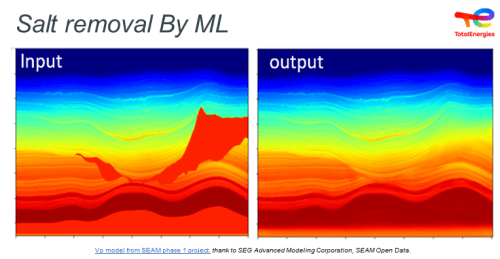Workshop 3
Maximizing Subsurface Recovery: From Hydrocarbons to Energy Storage for a Sustainable Energy Future Sunday, June 7th|
Convenors
- Sonia Lopez Kovacs (Repsol)
- Adriana Comanescu (Heriot-Watt University – Aberdeen EAGE Local Chapter)
- Dr. Prashant Jadhawar (University of Aberdeen)
Organised by EAGE Technical Community on Enhancing Hydrocarbon Recovery for Sustainability
Description
This workshop will explore how integrated subsurface characterization and engineering strategies can improve recovery and performance across diverse applications-including hydrocarbons, enhanced oil recovery (EOR), geothermal energy, and subsurface energy storage (e.g., hydrogen and CO2). With a focus on efficiency, sustainability, and cross-disciplinary innovation, the session will highlight advancements in geoscience, reservoir modeling, monitoring, and data integration. Participants will gain insights into best practices and novel approaches that bridge traditional and emerging energy systems, supporting the transition toward a low-carbon and resilient energy future. Contributions from both industry and academia will be featured through case studies and technical discussions.
Sub-Topics that will be covered in the workshop:
- Geoscience
- Geoenergy
- Subsurface
- Energy
- Cross-disciplinary
- Data integration
- EOR
- Oil and Gas
- Storage

Participant Profile
Geologists, geophysicists, petrophysicists, geoscientists, reservoir engineers, production engineers, drilling engineers
Workshop Programme
| Time | Activity |
|---|---|
| 09:30 | Welcome to Workshop 3 by Co-Chair "Maximizing Subsurface Recovery: From Hydrocarbons to Energy Storage for a Sustainable Energy Future" |
| Session 1 :Subsurface Geology and Geophysics | |
| 09:35 | Breaking the Bottleneck: Accelerating Virtual Outcrop Interpretation through a Suite of Semi-Automated Tools - John Wood (UoA), Cross-Discipline geomodelling |
| 10:05 | Digital Rock Science for subsurface hydrogen storage - Kamaljit Singh (HWU), Cross-Discipline geomodelling |
| 10:35 | Morning Break |
| 10:45 | The Role of Geophysics in supporting Waste-to-Energy :Optimizing Landfill gas recovery - Forina Tuluca (UoB), Applied Geophysics |
| 11:15 | Beyond Amplitude: Advanced Attribute Techniques for the Energy Transition - Tanya Colwell and Brian Russell (GeoSoftware), Applied Geophysics |
| 11:45 | Building the Subsurface of Tomorrow: AI‑Driven Workflows for Low‑Carbon Energy Deployment - Ines Cecilio (SLB), Cross-Discipline geomodelling |
| 12:15 | Lunch Break |
| Session 2 :Subsurface Reservoir Modelling & Optimisation | |
| 13:00 | Maximizing Subsurface Recovery: From Hydrocarbons to Energy Storage for a Sustainable Energy Future - Swati Gupta (Rara Energy), Reservoir modelling - Hydrogen storage |
| 13:30 | Reaction induced rock weakening under the context of CCUS and UHS - Zhou Yingfang (UoA), Reservoir modelling |
| 14:00 | CO2 Efficient reservoir optimization under geological uncertainty - Mark Lakos (RFD), Reservoir modelling |
| 14:30 | Afternoon Coffee break |
| 14:40 | Multiscale modelling from Technical feasibility to field deployment for CCS and UHS - Prashant Jadhawar (UoA), Reservoir modelling CCS&Hydrogen |
| 15:10 | Closed‑Loop Carbon Management :CO₂-EOR, a dual Path to Energy and Sustainability - Adriana Comanescu (HWU), CCS/EOR |
| 15:30 | Q & A |
| 15:50 | Discussion & wrapping up |
| 16:20 | Closing remark |
